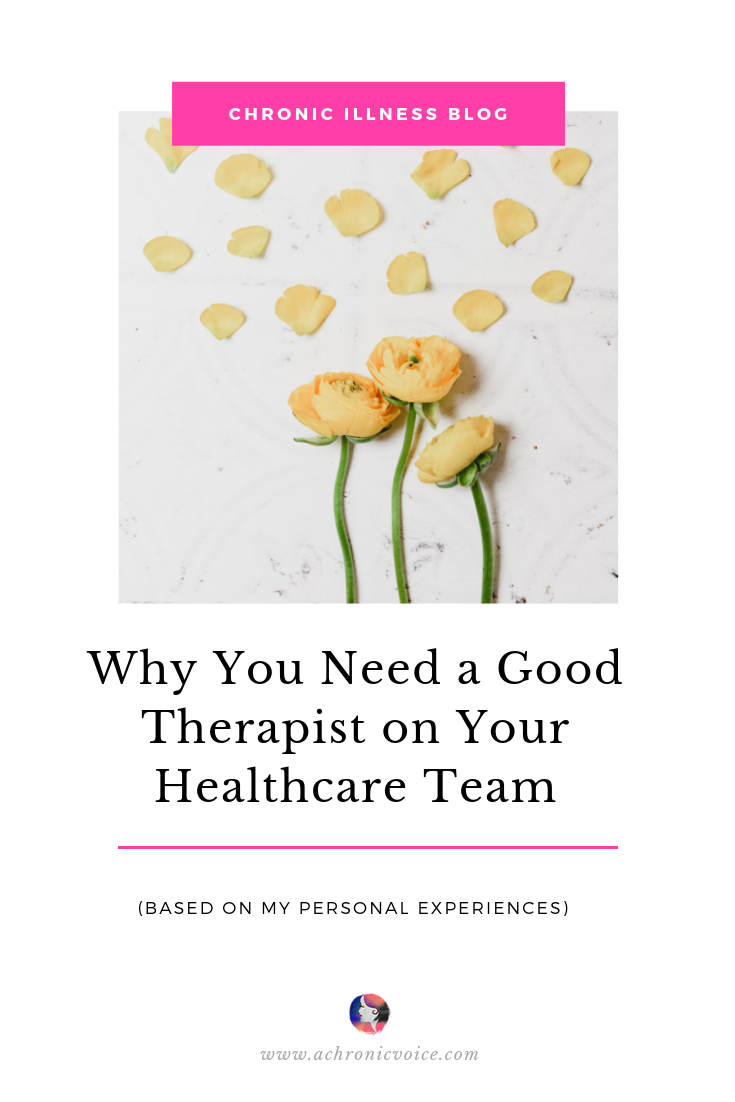*Note: Whilst this post is sponsored by BetterHelp, all opinions expressed in this review are my own.
If there’s one advice I’d give as a person who’s lived with chronic illnesses for 20 years, it is this: don’t ignore your mental health, and find a good therapist to be part of your healthcare team. I learned this lesson the long and hard way, when that time could have been better spent on improving my wellbeing.
Table of Contents
When There’s Nowhere Left to Go
The year I caught tuberculosis (TB) was a particularly bad one for me. It changed the course of my life in more ways than one, with my mental health taking the biggest blow. My coping methods that had worked for decades no longer did. When your motivation level declines to a flat line, you start to shrivel up as a human being, and your life concaves into nothingness.
Stopping the medications for TB wasn’t an option, so I begged my doctor to refer me to a psychiatrist for the first time in my life. At the same time, I was scouring the internet for a good psychologist. I wasn’t sure what the differences were, and what I really needed from whom.
You never know whom you’re going to get when you’re on public healthcare, but I was fortunate to be assigned to a psychiatrist whom I actually liked. Our initial consultation went well. She said that while my coping methods had been excellent thus far, I had finally reached that roadblock that we all hit some day. What we needed to do then, was to find new paths and learn more techniques to get around it. This consists of many things: medications, self-care, talk therapy and more.
The Key Differences Between a Psychiatrist, Psychologist & Therapist
You might be confused as to whom exactly you need to see for your mental health issues, like I was. What’s the difference between a psychiatrist, psychologist and therapist? The key differences, in brief, are as follows:
- Psychiatrists are medical doctors who can prescribe medications.
- Psychologists focus on psychotherapy using various methods, to address emotional and mental health issues.
- Therapists is a wide umbrella term that consists of social workers, marriage or relationship counsellors, life coaches, psychiatrists, psychologists and more. They may hold degrees or certifications in varied or specific fields.
My Personal Experience with a Psychologist
To give you a better idea and comparison, I will share with you what my psychology sessions looked like. I had selected mine after extensive research on the internet: what their fields of interests were, working styles, schedules, reviews and more. It matters a great deal as your relationship with your psychologist will be an intimate one. You will be sharing your vulnerability and weaknesses with them, so you need to be able to trust them.
My first session with my psychologist went even better than I had expected. We covered so much ground in a mere 50 minutes, and I left the clinic feeling lighter than I had for months. Whilst the problems still existed, a slight bit of perspective was helpful.
Every session was an exploration and revelation. We dove deeper and deeper into my childhood, inner child’s suppressed needs, fears, character, beliefs and more. The surprising thing – to me at least – was how my personality and life experiences influenced the way I coped with my health more than I had imagined. Nothing in this world is really isolated.
My Personal Experience with a Psychiatrist
My psychiatric sessions began around the same time, and she started me on medications to treat the clinical depression and anxiety. This period was also a mental revelation in many ways for me. I learned that mental illnesses are real problems happening within your body, and are not to be discounted or taken lightly. Medications are essential tools, and they made a huge difference in the quality of my life.
I found my sessions with my psychiatrist to be very different in nature. I’m sure that the amount of time allocated for private vs public healthcare mattered, but the approaches were like night and day. She was more scientific in some sense and treated things symptomatically. This is in comparison with my psychologist, who focussed more on emotional healing and root causes. Neither is better or worse; I found them valuable in different ways. Both require equal attention and have the same goals in mind.
Online Therapists as an Option in Modern Society
Teleconsultation is on the rise. We have apps here that partner with hospitals and clinics where you can ‘see’ a doctor online, with medications delivered to your doorstep. Online counselling is also gaining popularity, for many reasons:
- You may be too ill or physically unable to visit the clinic
- The commute is far
- You have other commitments that you can’t sacrifice more time for
- You wish to remain anonymous for whatever reason
- Cost (my psychology sessions were about $150 for 50 mins)
I’d strongly recommend that you see a professional therapist in-person for severe mental illnesses, are suicidal, or prefer actual human contact; some things you just can’t convey through a screen. But seeing a certified therapist online can also be a good place to start if you’re unsure of your needs, or what your next step should be.
How to Select a Good Therapist
It’s important to verify their qualifications. Where do their certificates or degrees come from? Make sure it is from an established educational facility. Next, their introduction should reveal other important information, such as how they conduct their sessions, their methods and/or what to expect.
Go through reviews from their patients, if any, to see what they liked or disliked about the therapist. See if these are critical plus or minus points for you. Finally, your therapist may also own a website or have had articles published somewhere. Reading them can also give you more insight into them as a person, their values, and if you will get along.
Keep Looking if Your Therapist Isn’t a Good Fit
Based on my personal experiences, I am a firm believer that mental healthcare is no less important than physical treatment. Each affects the other to contribute to your overall wellbeing. I have also experienced the difference it can make, and the lessons and coping strategies I learned are applicable for life.
Having said that, not all therapists are equal. They may not necessarily be a lousy therapist, but we are all diverse individuals; getting your point across will prove easier with some than others. If your first experience with a therapist didn’t go well, don’t be discouraged and write off therapy as ‘not for you’. I would encourage you to keep looking until you find a good fit. You are also allowed to change your therapist along the way, if you feel that someone else might be able to provide better support.
Get Started with Your Mental Health Online
There are a number of counselling platforms online where you can find a licensed therapist. BetterHelp is one of the more established options, with a wide selection of therapists to choose from at an affordable rate. I also like how you have accessibility to mental healthcare right at your fingertips.
As someone who lives with chronic illnesses, I have learned that it’s important to build up a support team that I trust, like and am able to work with. Having good doctors, friends, family and therapists are not options or something I can do without. They are important partners for my long-term wellbeing, survival, quality of care and life.
This list is just a rough guide, and nothing in this review should be taken as medical advice. Always be sure to check with your doctor before you start on any new treatment or protocol.
Read More: Is Seeking Help for Your Mental Health Worth the Fuss?
If you liked this article, sign up for our mailing list so you don’t miss out on our latest posts! You will also receive an e-book full of uplifting messages, quotes and illustrations, as a token of appreciation!






Care of the mind translates to care of the body. Loved the article Sheryl.
Hi Verla, yes indeed! It definitely goes both ways x
Wonderful post! A therapist is key to any health care team and I know without mine I would be completely lost! Although my physical health has also suffered lately, I’m more in touch with my therapist than any other providers.
Thanks Nyxie! Yes they’re such an integral part of any healthcare team and longterm illness. I hope it becomes more common because it’s so important 🙂
I’ve learnt this over the years, too. Your healthcare team may be filled with a GP, specialist doctor, complimentary medicine doctor/practitioner etc. but having that mental health professional there to support you too goes a long way in making you feel supported in all aspects of living with a health condition/s.
Hi Rachel, yes! It took me a long time to realise how crucial my mental health was living with something like chronic illnesses. My docs weren’t helpful in that regard either, but I think in general are becoming more aware, too. I just wanted to make sure others catch it early on!